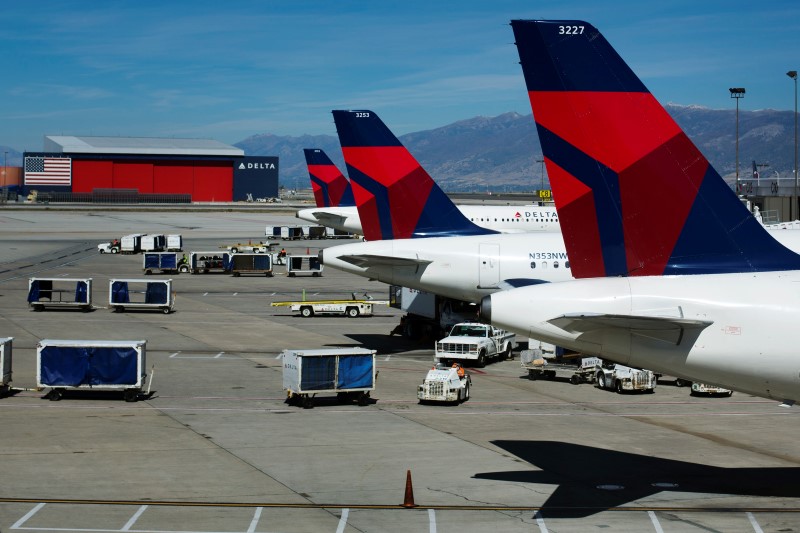Berkshire Hathaway reveals $4.3 billion stake in Alphabet, cuts Apple
SAN JOSE, Calif. - Delta Cargo, the air freight division of Delta Air Lines (NYSE:DAL), has implemented a new shipment tracking system called Pulse, powered by Trackonomy’s visibility technology, according to a press release issued Tuesday. Delta, with a market capitalization of $37.7 billion and annual revenue of $62.9 billion, continues to strengthen its position as a prominent player in the Passenger Airlines industry, according to InvestingPro data.
The platform provides real-time location intelligence for air cargo shipments across Delta’s network, offering proactive alerts to operations teams about potential disruptions before they affect performance.
Pulse utilizes Trackonomy’s Sentient Platform, which integrates Delta’s Cargo IQ-compliant data, real-time flight information, and third-party sources to enable predictive analytics. The system extends across airport operations through sensors on equipment including gateways, tugs, and belt-loaders.
"Pulse represents a major leap forward in how cargo moves through our network," said Andy Kirschner, Director of Americas Sales at Delta Cargo. "By leveraging Trackonomy’s advanced visibility and AI-driven alerting technology, we’re able to not just identify issues before they happen but at times resolve them autonomously."This innovation comes as Delta trades at a P/E ratio of 8.31, which InvestingPro identifies as a low earnings multiple. The company has maintained profitability over the last twelve months, with 14 analysts recently revising their earnings expectations upward.
The system is currently active for DASH and DASH Critical shipments at 16 stations across the United States, including major hubs such as Atlanta, New York-JFK, Los Angeles, and Chicago. Additionally, Pulse is available for import-only tracking at three other locations.
Delta Cargo customers automatically benefit from the new system without additional steps, as each package is enhanced with a SmartTape tag that activates the tracking capabilities.
The collaboration aims to improve operational reliability and customer confidence by enabling faster response times and reducing delays in air freight movement, based on the company’s press release statement.
In other recent news, the Federal Aviation Administration (FAA) is grappling with significant air traffic control staffing shortages, leading to flight delays at six major airports, including Atlanta and San Francisco. Additionally, the FAA plans to reduce flights by 10% at 40 high-traffic U.S. airports due to safety concerns amid the ongoing federal government shutdown. This reduction will begin with a 4% cut, escalating to 10% the following week, as communicated by FAA Administrator Bryan Bedford. The shutdown has also led to a noticeable decline in passenger bookings, according to Airlines for America, an industry trade group. Chris Sununu, the group’s head, reported that the drop in bookings has been worsening each day. Meanwhile, airline stocks have fallen, with American Airlines, Delta Air Lines, and United Airlines experiencing declines amid concerns about the shutdown’s impact on air travel. Transportation Secretary Sean Duffy has warned that if the shutdown persists, it could result in "mass chaos" in air travel, potentially leading to significant delays and cancellations. Duffy also indicated that the Trump administration might shut down the entire aviation system if travel conditions are deemed unsafe.
This article was generated with the support of AI and reviewed by an editor. For more information see our T&C.
